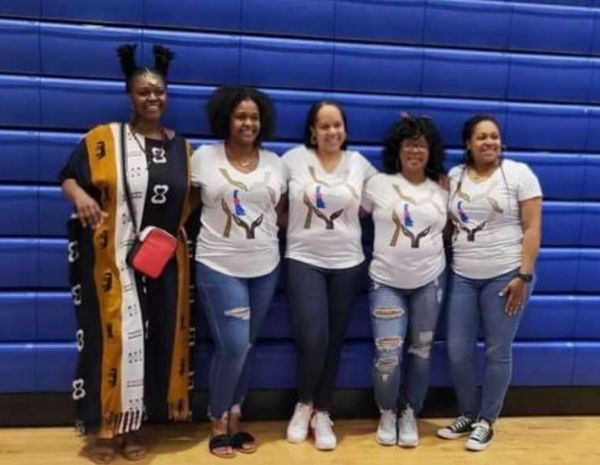Black birthing people in Delaware are 52% more likely to birth a preterm baby, according to the March of Dimes. That’s just one of many devastating statistics Erica Allen hopes to improve with the help of her team of professionals through her Kent County based 501(c)3 non-profit organization – Do Care Doula Foundation, Inc.
Allen, a resident of Smyrna, DE, hopes to make major changes to Black maternal health disparities in Delaware – but she and her team of doulas need help to make it happen.
The organization touts seven doulas who were trained through Commonsense Childbirth Institute which is owned by Time Magazine’s 2022 Woman of the Year Midwife Jennie Joseph. Training components included lactation education, childbirth education as well as doula support with an emphasis on cultural practices specific to the Black birthing community.Â
“A Doula is an individual who provides non-medical support to others during significant life experiences including, but not limited, to pregnancy, birth, and postpartum,†Allen said. “Doula care is important because we take the time to educate, advocate and support our birthing people with a personalized level of care based on the knowledge that we receive regarding their specific needs.â€
This individualized care, however, doesn’t come for free – even though she would like to see that happen for her clients. She said one of their goals is to use grants, sponsorships and other funds so her team of doulas can provide care to the Black community at low or no cost to clients in an effort to minimize health disparities such as preterm birth, elective inductions which could result in cesarean sections and, ultimately, the death of a baby or birthing person due to inadequate care.
“Doula care is important to the Black birthing community because Black birthing people are two to three times more likely to suffer negative outcomes in relation to the pregnancy, birth and postpartum timeframes in comparison to Caucasian birthing people. Sometimes, this could be as serious as death for them, their baby or both,†Allen said. “In addition, Black infant mortality in the state of Delaware is 12.4 per 1,000 live births compared to 3.1 per 1,000 live births for white babies and 5.6 per 1,000 for Hispanics. Studies have shown that doulas are able to decrease some of those occurrences by providing education as well as continuous support to Black birthing people. Knowing what to expect is key in assisting birthing people with preparing for birth as well as knowing what to watch out for in regards to treatment from providers.â€

Allen believes knowledge is both powerful and comforting and said education is likely the largest need for maternal care in Delaware. Some people, she added, don’t understand the birthing process or how to initiate and maintain breastfeeding. These instances, as well as others such as comforting a client through labor with breathing techniques, are important attributes of doula support.Â
“Black birth disparities have no significant socioeconomic factors when it comes to who is impacted. We can be college educated or a high school dropout. We can be wealthy, middle class, or living in poverty. We can have one child or several children. We can come from two parent homes or single parent homes. If you are a Black birthing person, you are more likely to suffer negative outcomes just because you are Black. So providing free doula support is important because Black people should not have any barriers to receiving support to stop them from possibly experiencing negative outcomes. We should not have to fit into a certain box or fill out lengthy paperwork to qualify for support to potentially save our lives,†Allen said passionately.
She added, “Statistically, the Black maternal mortality rate in the state of Delaware is 36.3% compared to 14.8% found in Caucasians. Oftentimes, providers do not always have an adequate amount of time to meet with pregnant people due to the high volume of patients that they see. This leads to rushed appointments and a feeling of uncertainty regarding medical concerns.â€

This is just one of many reasons why doula care is important for the Black community in Delaware.Â
“It’s hard out here to find people who truly care about your needs and your child’s needs,†Trinity Johnson said. “Mrs. Erica has been a part of my daughter’s life since she’s been born and every day she has checked in on us constantly. She has gone above and beyond in helping me in my breastfeeding journey. . . She was a really good listener. She understood my needs and helped me accomplish my goals. She never judged and she always took time to tell me I was doing good. No matter how bad I felt, she encouraged me and pushed me to keep going. She always gave great words of wisdom.â€
The organization has, in the past, received grants from Highmark, Wawa and Walmart to name a few and hopes to receive more funding in the future to support the work and training of their current and future doulas. Four of the doulas with Do Care Doula, Inc., including Allen who is also a licensed practical nurse, are also training to become some of the first Black certified professional midwives in Delaware.Â
Training costs about $10,000 per group of new doulas. Currently, the organization has six doulas available to provide support to the Black community. More are needed as demand is high, according to Allen.Â
Future Black doulas interested in training, so they can serve the community, should reach out to Allen via the organization’s Facebook page at .
Donations can be sent to docaredoula via PayPal, Venmo, and Cashapp. Checks can be made payable to Do Care Doula Foundation, Inc. and mailed to P.O. Box 472, Smyrna, De, 19977.



